Six Great Things You’ll See on the North Bend Rail Trail
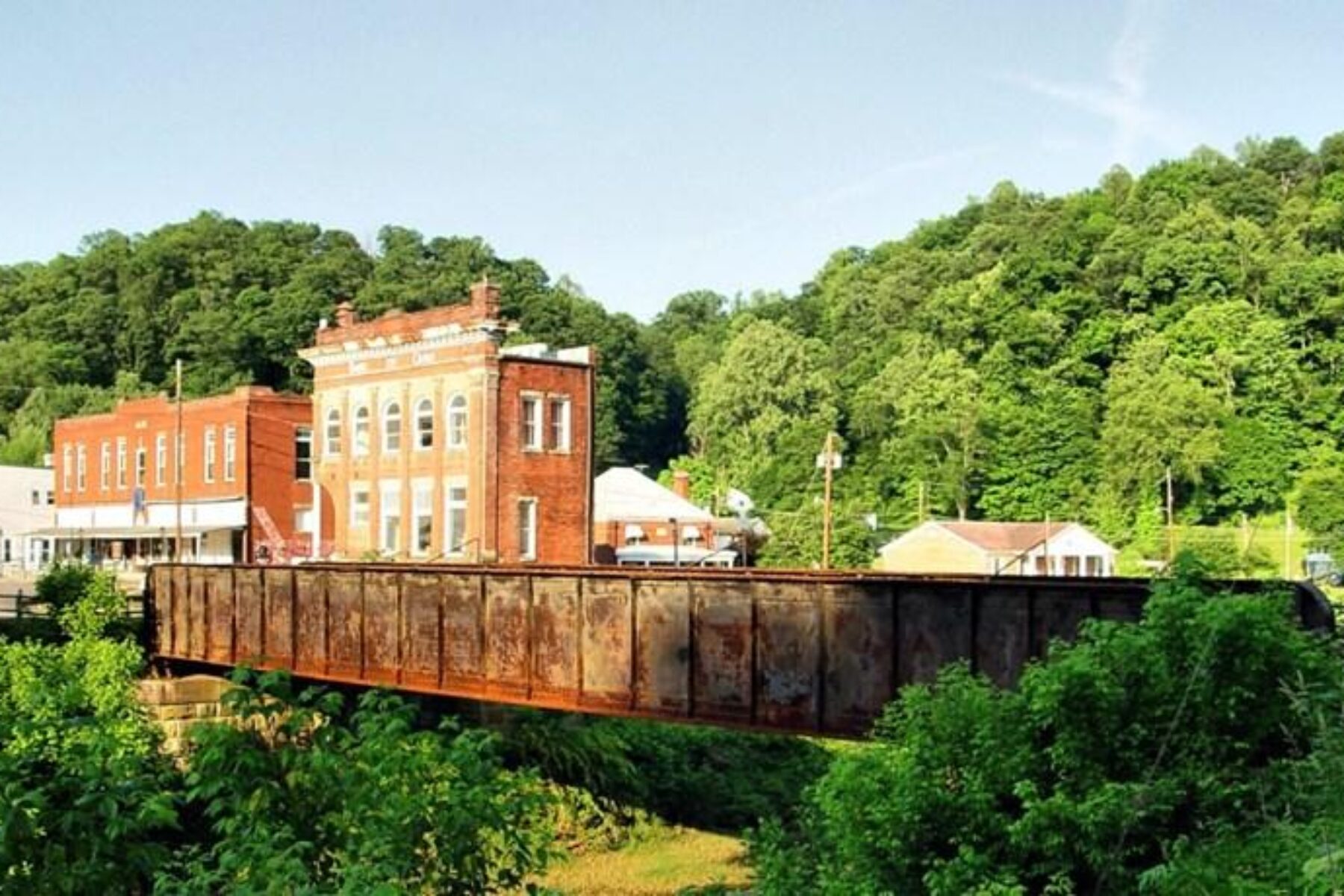
Winding under lush tree canopies and through rocky cuts in the hillsides of the Appalachian region, the North Bend Rail Trail exemplifies “Wild and Wonderful” West Virginia. For those who seek adventure on this remote and pristine pathway but who are a little hesitant to go it alone, RTC’s 2016 West Virginia Sojourn provides a stress-free way to explore the 72-mile rail-trail with a friendly group of fellow travelers and experienced guides.
1. Parkersburg
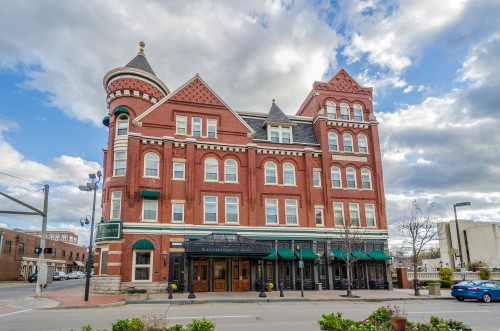
The historical charm of Parkersburg is on full display—not hidden in a dusty corner of the city. Our West Virginia Sojourn begins and ends here, a place laced with elegant Victorian buildings and cultural sites along quiet leafy streets. Instead of skyscrapers, the glittering Ohio River and its beautiful Parkersburg-Belpre Bridge dominate the skyline. Sojourn travelers who arrive a day early have the option of staying at the Blennerhassett Hotel, which is on the National Register of Historic Places and just a few blocks from local treasures such as the Julia-Ann Square Historic District, the Oil and Gas Museum and the Artcraft Studio.
2. Tunnels
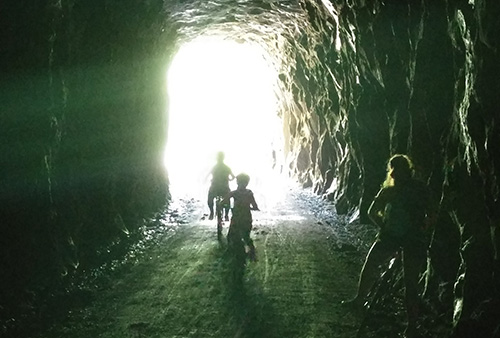
The North Bend Rail Trail has a whopping 10 tunnels to explore. On your first day, you’ll visit Eaton Tunnel, the trail’s second longest at 1,840 feet, and the spooky Silver Run Tunnel, said to be haunted by a ghost.
Day 2 brings passage through the longest tunnel at 2,297 feet, as well the Dick Bias Tunnel just outside of Ellenboro that was carved more than 300 feet through solid rock. Its name honors the visionary leader who made the trail possible.
RELATED: 10 Rail-Trails That Helped Build the Movement
3. North Bend State Park
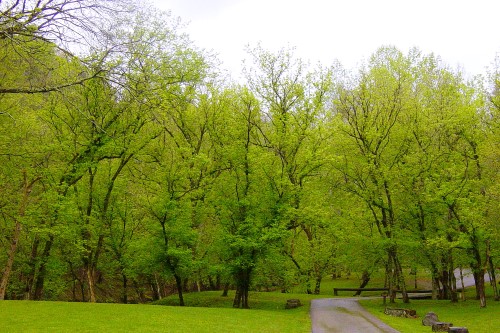
After a day of riding, North Bend State Park offers a fine place to tuck in. The park surrounds the lush valley of the North Fork of the Hughes River.
Keep watch for deer, wild turkeys and other wildlife that may quietly appear in the woodlands, and explore one of the narrow hiking paths that beckon “follow me” as they disappear among the trees.
4. Bridges
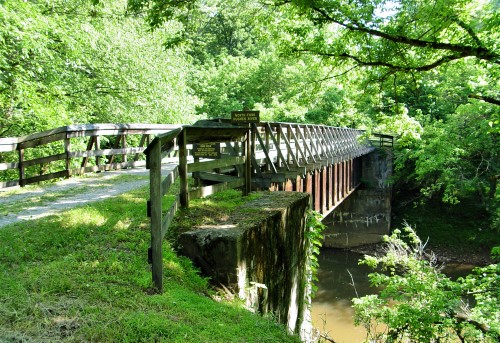
If you thought the tunnels were great, check out the trail’s bridges; there are 36!
Although none of the bridges along the rail-trail are exceptionally long, they provide frequent intervals to take a moment’s pause and enjoy the natural surroundings as you cross over the area’s numerous picturesque small creeks.
5. Cairo
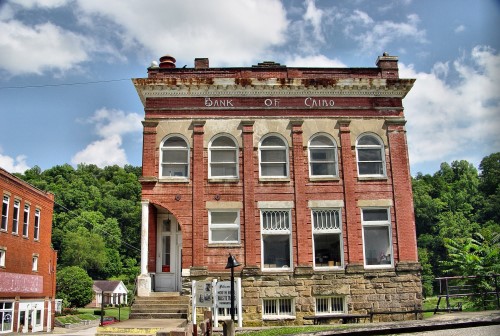
Nestled into the rural hillsides, Cairo (pronounce it CARE-oh to sound like a local), with a population of around 300, is a little town that’s big on charm. As you cross the North Fork of the Hughes River and arrive into town, you’re greeted by a stately two-story brick building, the historical Bank of Cairo, built in 1896 and now serving as a visitor center. Pedaling through the community, you’ll find quaint shops and an old-fashioned general store in this former oil and gas boom town. Later, the area was known for its thriving marble-making industry.
6. Pennsboro
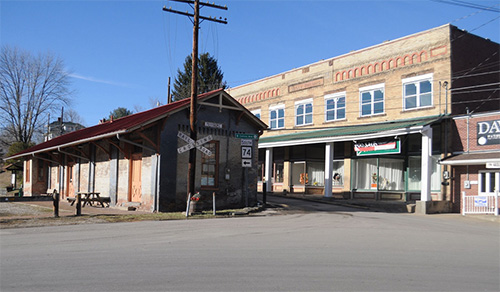
The quiet city of Pennsboro, once a bustling stop on the Baltimore & Ohio Railroad (on which the trail is now built), was named after a railroad surveyor. The small, one-story brick depot here (one of three depots along the rail-trail) was built in the late 1800s and still stands tribute to that history.
Even older still, the Old Stone House, a stagecoach inn dating back to about 1810, serves as a museum and is included on the National Register of Historic Places.
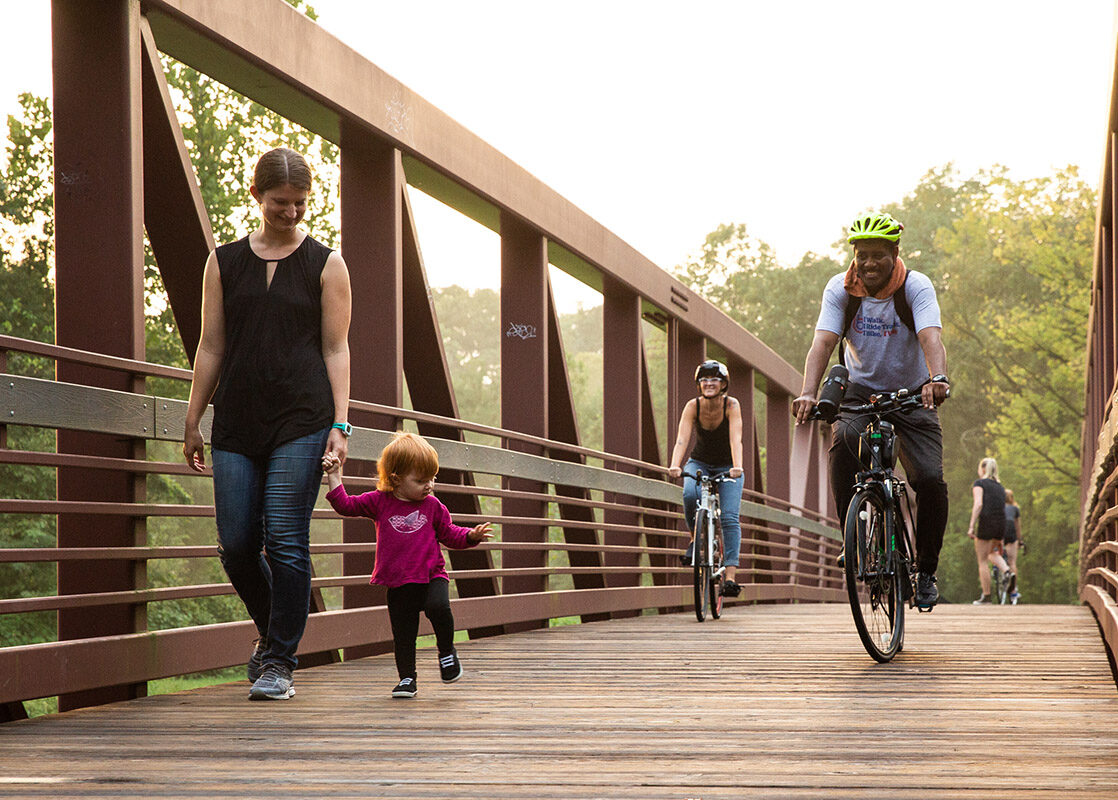
Donate
Everyone deserves access to safe ways to walk, bike, and be active outdoors.
